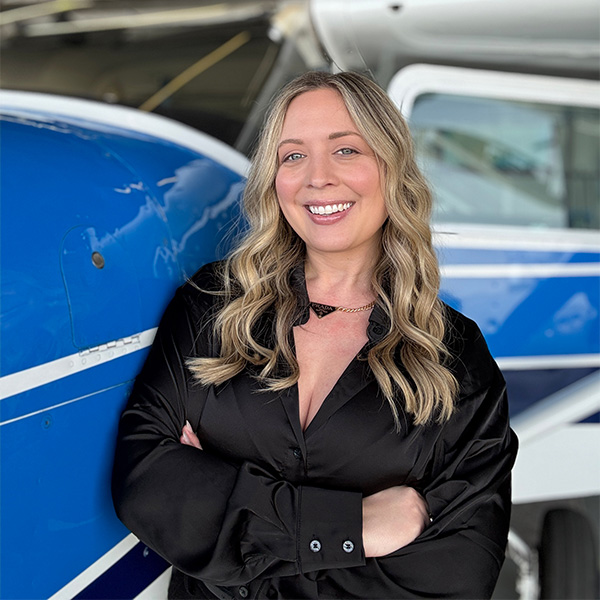AOPA fires back at Santa Clara County amid 100LL fuel ban dispute
Claims violation of federal rules and outlines reports of unsafe fueling events caused by airport’s action
AOPA and other stakeholders cited several inaccuracies in Santa Clara County’s motion to dismiss, or resolve in the California county’s favor, a Part 16 complaint submitted in October that warns of unsafe practices at Reid-Hillview Airport.
In the initial complaint, AOPA and co-complainants asserted that Santa Clara County is violating grant assurances, risking safety, and imposing undue hardships on aircraft owners, operators, and business owners at Reid-Hillview and San Martin airports with the ban of the sale of 100LL fuel before a fleetwide 100-octane unleaded fuel solution is identified and commercialized.
Currently, there is no commercially available and viable unleaded fuel option for aircraft that require 100-octane fuel.
In response, AOPA and its co-complainants cited multiple examples of attempts to negotiate with the county to informally resolve this issue that received little to no response. Further, AOPA and fellow aviation advocates alleged the county was violating its grant assurances, citing a recent FAA statement that “a ban or restriction on the sale of 100LL at a federally obligated airport is inconsistent with Grant Assurance 22.”
In the original complaint, AOPA shared its concern regarding unsafe operations that could arise as a direct result of the banning of the sale of 100LL before 100-octane unleaded aviation fuel is widely available, and reiterated this concern in the most recent response to the county’s motion. This time, AOPA included an affidavit from Reid-Hillview Airport business owner Niknam Nickravesh, who confirmed that misfuelling occurred at Reid-Hillview, and indicated that the lack of 100LL availability contributed to an aircraft accident. AOPA contacted the FAA inspector participating in the accident investigation, and awaits a response.
According to Nickravesh, the accident aircraft, a Piper PA–32, came to him for an extensive annual and had about 15 gallons of fuel in each tank. Historically, this aircraft would arrive in need of refueling before its annual and the pilot would fuel the aircraft at Reid-Hillview before departing. Nickravesh and his team worked on the aircraft for approximately four months. When the aircraft was complete, Nickravesh said that he personally observed the aircraft had little to no fuel remaining in the left tank as a result of the engine run ups.
Nickravesh said, “It is my understanding that the operator of the aircraft was aware of the Aircraft’s fuel status but was not able to obtain 100LL fuel at RHV” and that the pilot planned to fly to neighboring San Jose International Airport to obtain 100LL. “As a result, the Aircraft departed RHV with little to no fuel remaining.” After the crash, Nickravesh says, he was told by an NTSB accident investigator that the aircraft had run out of fuel.
The county claims to offer owners and operators the option to apply for a self-fueling or emergency self-fueling permit, which would allow pilots to potentially use fuel obtained from the source of their preference with no assistance from the county. Harry Freites, a civil engineer and the county’s director of roads and airports, stated in a declaration to the FAA that “no Complainant has applied to the County for general aviation self-fueling permit.” The county also claims to offer a commercial self-fueling permit, but as AOPA and its co-complainants pointed out, this permit requires the fuel to be purchased from the county, which does not sell 100LL.
AOPA cited an affidavit from San Martin Airport tenant and aircraft owner Paul Marshall that stated he applied for a self-fueling permit for 100UL and after three months of no response and with no viable 100UL option available, abandoned his application. Marshall said, “I have never requested a self-fueling permit from the County for 100LL as I understand that they would refuse such a request. County staff has communicated to me quite clearly that 100LL fuel will not be permitted on the airport.”
A source that wished to remain anonymous confirmed to AOPA that he was asked to assist with fueling two aircraft on two separate occasions that had arrived at Reid-Hillview Airport below fuel minimums and in need of 100LL. On both occasions the source used his personal property to purchase and transport fuel from nearby Palo Alto airport to Reid-Hillview to assist these marooned aircraft. AOPA verified this account with the leader of a San Jose aviation nonprofit organization.
AOPA explained that the provisions of the self-fueling permit make it an unrealistic and unaffordable option. Permittees must pay the county a self-fueling flowage fee and must purchase specific equipment like a minimum 20-gallon tank. Permittees must also find somewhere off airport to park their fuel transport vehicle, comply with all federal, state, and local laws concerning transport, storage, and dispensing of flammable liquids, and obtain expensive insurance naming the county as additional insured. These requirements are especially burdensome with the anticipated switch to 100UL once it becomes commercially available.
AOPA will continue to work with the FAA and public-use airports until a safe and viable transition to an unleaded fuel option is available.




